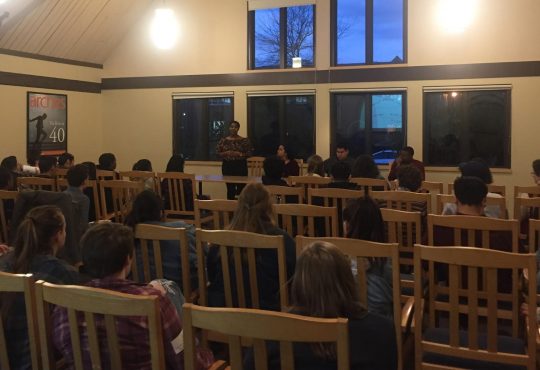
Fall elections for the Associated Students of Puget Sound (ASUPS) took place Oct. 11, 2018. Out of the 12 total senate positions, seven were up for election this fall: three senators-at-large, the greek house senator, the freshman senator, the on-campus house senator, and the residence hall senator.
So, what is ASUPS Senate? The ASUPS website defines Senate as “the legislative body that establishes and reviews all policies, affairs and activities of ASUPS. It is in charge of finalizing the use of your ASUPS funds. In addition, the ASUPS Senate confirms all appointments made by the Executive branch as well as recognizes student clubs as official ASUPS clubs. Finally, the Senate has the ultimate power to amend the ASUPS budget, Constitution and By-laws.”
Senators’ terms last an entire year, with two exceptions: the freshman senator serves half a year and the senior senator serves a year and a half. All senators host office hours to give students the opportunity to get to know their representatives and to make themselves more accessible to the student body.
Additionally, each senator completes one senate project during their term and also has the opportunity to sit on various ASUPS committees including Food, Health and Safety, Finance, Election, and Budget Committee.
Senate meets twice a week on Tuesdays and Thursdays at 7 p.m. in the Murray Boardroom, and meetings are open to the public, allowing the campus community to watch, participate, and voice their opinions and concerns.
The three senator-at-large positions were filled by Bailey Gamel, Nick Gerard and Becca Lumbantobing.
“I am incredibly excited and honored to serve the student body as a senator-at-large. Many of the projects I hope to work on involve advocating for resources and services that support marginalized students. This position belongs to every student, so I am always open to hearing and collaborating with students on the issues that are most important to them,” Lumbantobing said.
The new greek house senator, Sara Jane Griffiths, is striving to “connect those involved in Greek Life with the broader discourse and activism occurring throughout campus,” and is “looking forward to meeting with folks living in greek houses to hear more about how ASUPS can best serve them!”
The new freshman senator is Corey Mangseth, and the on-campus house senator is Kate Gladhart-Hayes. Danny Charney is residence hall senator, sharing a goal of “making sure the halls are adequate and comfortable for the students. I want everyone to feel that these spaces are for them. I really want all residents to feel excited to be in the halls and a part of the community.”
Campaigns were promoted in the weeks leading up to Oct. 11, in an effort to make the student body more aware of elections approaching and hopefully maximize student participation. The biggest issue surrounding ASUPS elections has always been voter turnout, despite an accessible online ballot and a short voting time. In good news, ASUPS Vice President Sam Inouye shared in an announcement of the newest senators that this year’s election was the biggest fall election ever, with voter turnout more than doubling.
While much of the campus turned out to vote, one group of students had problems with their ballot. Residents of Langlow, the Honors residential house on campus, were unable to vote for on-campus house senator due to Residence Life’s labeling of Langlow as a residence hall in the housing data.
Emily Mullins, Assistant Director for Reporting and Analysis in the Office of Institutional Research, addressed students’ concerns and commented on ASUPS’ reaction to the mishap.
“The institution considers Langlow a residence hall and has for many years. In the case of this year’s ASUPS elections, ASUPS considered Langlow to be an on-campus house (thus, a student who lives in Langlow was on the ballot for on-campus house senator), which is not in alignment with how Langlow is institutionally considered a residence hall,” she said.
The ballot remained unfixed during the fall elections, but students affected were able to email in their vote for on-campus house senator.
“Sam Inouye and the rest of the ASUPS leadership team will need to make a decision going forward about whether Langlow will be considered a residence hall or as an on-campus house for next year’s elections,” Mullins said.
Kate Gladhart-Hayes, a Langlow resident and the new on-campus house senator, commented on the ballot mix-up: “As a Langlow resident, I’m familiar with the fact that we get classified in interesting ways by Res Life sometimes; that impacts the information that ASUPS has for creating ballots as well as how it makes sense to group residential senators, so I completely understand where issues or a lack of clarity could arise. Ultimately, Sam, our wonderful ASUPS VP, was able to create a work-around so that people in Langlow could still vote for the position.”
With new senators in office and the semester in full swing, it’s important that students continue to build relationships with their ASUPS representatives to ensure that ASUPS continues to pursue what is in the best interest of the student body.






